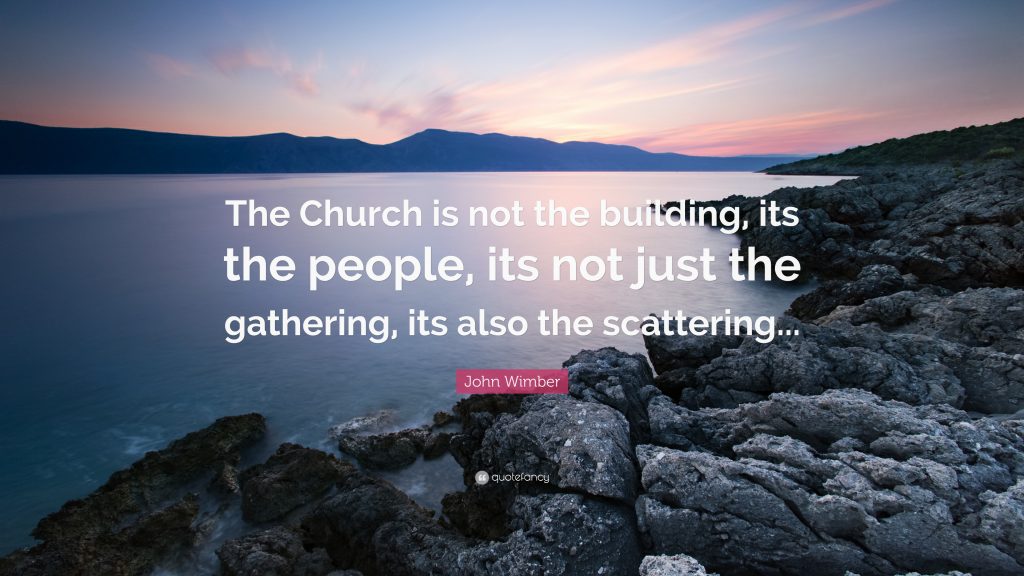by Phil Andrews

When Jesus sent his apostles forth to build His church, I wonder if He envisioned quite the diverse array that that simple command would engender two thousand years down the line? Catholic churches, Orthodox churches, Protestant churches low, high and somewhere in the middle – all of these love and worship our Lord, following their own rituals, rites and practices which have developed separately down the ages.
And even within each denomination, there are marked differences of method to cater for every taste. No one is necessarily any closer to God than any other, but some prefer to sing and some prefer to clap, whilst others favour more modest interactions and to listen attentively and in respectful silence to their preacher between hymns. Generally we each tend to gravitate towards those churches which best reflect our own chosen “way”, and everybody is happy. Let a hundred flowers bloom, as someone famous once said.
Which leads us nicely to the question of why we come to church in the first place. Needless to say first and foremost we come to worship God, but that in truth is really only half an answer. It doesn’t explain why people choose to attend a particular church, in preference to another church. It doesn’t explain why people opt to come to our church.
In reality there are probably as many different reasons as there are worshippers – maybe even more. Some come to see their friends, others because the church building is close to where they live, others still because they happen to like the hymns we choose. Some many enjoy the lie-in which an 11.00 am start allows them. It may even be that the appeal of a particular preacher is the deal-breaker which lures this person or that to our doors.
I love you just the way you are
What would seem inarguable is that if something we are doing right is keeping our present congregation happy then to change our format in any significant way would be to test their loyalty to the point of jeopardy. As one stalwart told me recently: “I like things just as they are.”
Much consideration and discussion has been committed amongst some regulars in recent months to how best to improve attendances and build participation. After all, Christ commanded us to build His church and to spread the good news far and wide. But if in so doing we were to alienate those who are with us already the whole object of the exercise would be defeated somewhat.
Thus to alter our method of doing things in any fundamental way would in all likelihood prove to be something of an own goal. For those who wish to shake tambourines and play guitars as a feature of their worship (and to do so is a perfectly valid means of expressing your love for God if it is your thing) there are already churches which cater for such desires. Speaking personally, I am not sure whether arriving at our church on a Sunday morning to find Antony in the pulpit riffing on a Stratocaster whilst belting out “Spirit in the Sky” is an experience I could easily cope with.
Let’s not accept decline
But none of this is at all the same thing as accepting decline. It is a sad fact of life that in developed Western countries the Christian church does not enjoy the same level of active support as once it did. However, when I consider the decline in numbers that I have witnessed I am not comparing the present day situation with 1848, when our wonderful building first gloriously rose from its foundations to meet burgeoning demand from a fast-growing Isleworth community. Instead I am comparing it with 1998, the year I came back to the church that I had attended as a youth and was proud to take my place amongst a fine bunch of people some of whom are still worshipping with us presently. Just a couple of decades ago. We sang the same hymns, from the same hymn books, as we do today. We listened to the same style of sermon (any wisecracks about it being the same sermon would, I am sure, be most unjustified). The church looked the same, the services felt the same. Only there were more of us.
The “change” I want to see, such as it is, is simply to reverse this process. To fill our pews, not to replace them. I’ve no desire to change the nature of our services, simply to have more people there to appreciate them. Sure, we can take advantage of new technologies to assist us in this quest, just so long as they serve us rather than define us.
There is much to value and to cherish about the things we do already, and the way in which we do them. In fact, I look forward with eagerness and some impatience to the day when we have more people to show them off to.